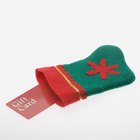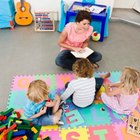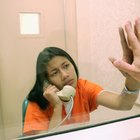
A divorce is not just hard for the married couple. It also drastically impacts their children's lives as well. Children may feel all kinds of emotions about the divorce -- from anger to sadness to disbelief. Have your children participate in fun activities that can help them cope with the changes ahead and gain a better understanding of the divorce process.
Draw Pictures
Have children express their feelings about the divorce through artwork. Provide children with paper and markers or crayons. Before the children draw the pictures, ask them questions such as "How does the divorce make you feel?" or "Which parent's home do you live in?" as inspiration for their artwork. This will give children a creative opportunity to express themselves without having to say how they feel. Once children are done, ask them to explain their pictures, and be supportive and comforting.
Read or Write Stories
Take children to a local bookstore to purchase children's books with divorce themes and storylines. Ask a sales associate for suggestions or look up book titles online ahead of time. Have children look through some of the books. They may be able to relate to a character's own feelings about divorce. Purchase some books for the children to take home. For a different approach, have children create their own storybooks, using stapled pieces of paper and crayons. Children can read their stories to their parents and siblings.
Play "Dealing With Divorce Quiz"
PBS Kids offers a simple, five-question online "Dealing With Divorce Quiz" for children. Have children log on to the website and take the quiz. Each question gives children a scenario about a child dealing with his parents' divorce and they must guess the correct answer. If the correct answer is selected, the screen displays "Good job!" and children are given a description on what they should do if they feel the same way about their parents' divorce.
Create Parent Information Cards
Though children will not be living with both parents anymore, they should still know how to reach each of their parents. Provide children with index cards and pencils. Have children write the mother's information on one side of the card and the father's information on the other side. Information included on the card could be each parent's address and phone numbers, days the children live with the parent and the things they enjoy doing together. Tell children to keep the card in a safe place and refer to it when they need to.
Related Articles

How do I Purchase Master Card & Visa ...

30th Wedding Anniversary Gift Ideas for ...

How to File for Legal Separation in ...

Valentine's Day Party Games for School- ...

Can You Fix Unhappiness in a ...

How to Make a Memory Book for a Gift

Fun Indoor Activities for Kids & Adults

Mardi Gras Party Games for Kids

Children's Beatitude Activities

How to Clean Vans Slip Ons

How to Get a Fast Divorce in Louisiana

Things to Do to Honor the Birthday of a ...

How to Find Daycare Inspection Reports ...

How Do I Find Out the Tax ID Number for ...

Crafts for Teaching Beatitudes to ...

Healthy Boundaries for an Obsessed ...

How to Cope With a Spouse's ...

How to Announce Being a Grandma

Ideas for a Photo Slideshow Movie for a ...

Decision & Consequences Games for ...
References
Resources
Writer Bio
Wannikki Taylor is a professional writer with a Bachelors of Arts in journalism from Temple University. She serves as a children's columnist and covers family entertainment for several print and online publications. She specializes in games, crafts and party planning ideas for kids and their families.
Photo Credits
Pixland/Pixland/Getty Images